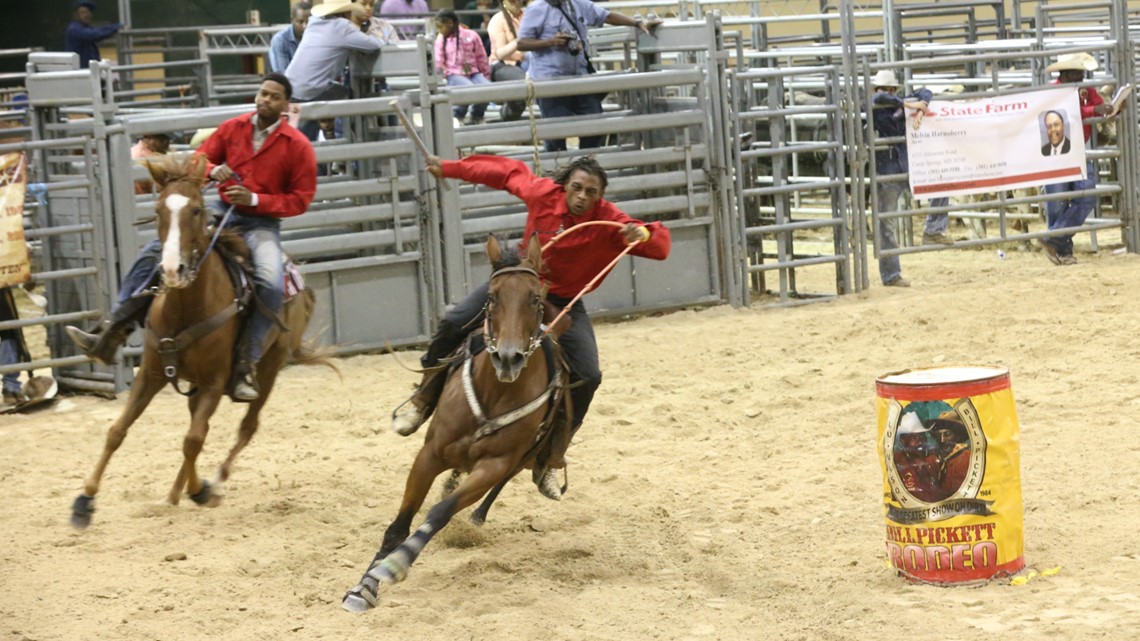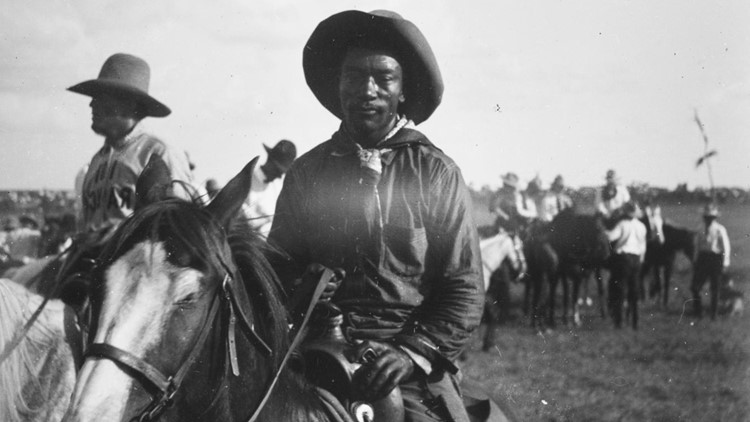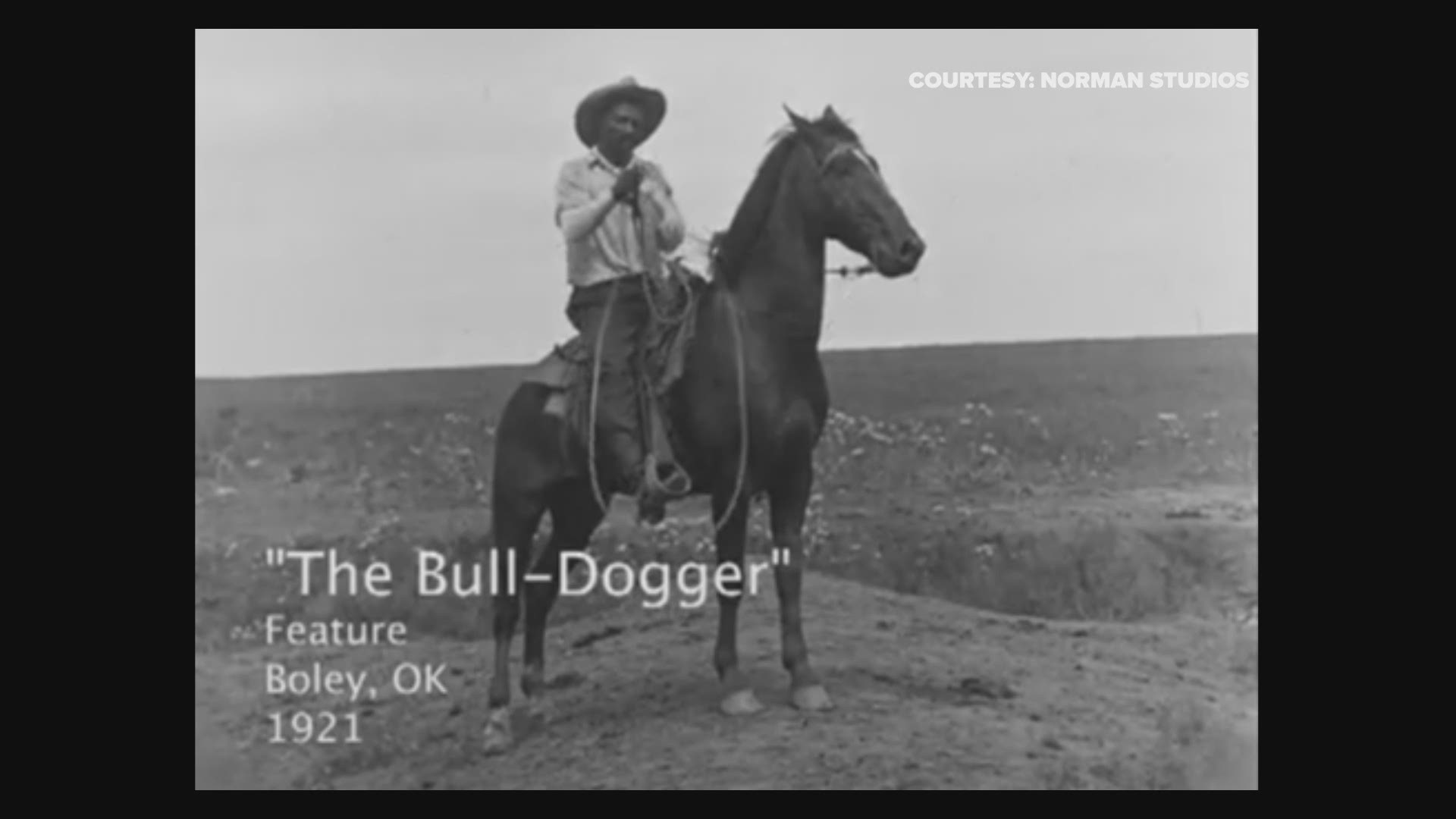The African American community and the rodeo community have plenty of overlapping connections, but none may be as strong as Bill Pickett and bull dogging.
Willie M. "Bill" Pickett was born in 1870, five years after the Civil War ended and slaves were emancipated.
He grew up about five miles southeast of Liberty Hill in Central Texas. His father, Thomas Jefferson Pickett and mother, Mary, had 13 children.
Pickett's ancestors were a mixture of African American, white and Cherokee Indian, which was an uncommon blend in the 1800s, according to author Colonel Biley C. Hanes.
Early in life, the Picketts moved east to Taylor, Texas. Pickett and four of his brothers ran a business called "Pickett Bros. Bronco Busters and Rough Riders Ass'n."
Around the time he was 18, Pickett started riding horses and growing intrigued by the longhorns walking about the Texas land. The cattle dogs also caught his eye, as the heel dog and the catch dog could capture stray steer.
Cowboys used these dogs because it was next to impossible to swing ropes or make cow catches in the tangles of brush that covered much of where the Pickett family lived in Texas.

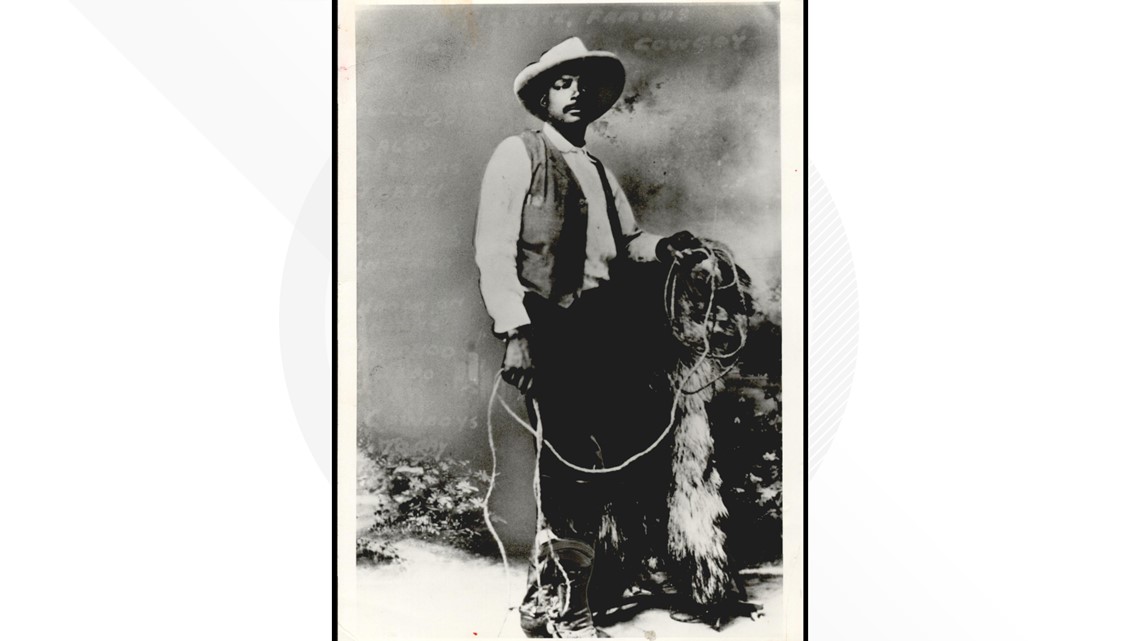
While it isn't known where it first happened, Pickett found a way to bring down a steer all by himself. This is why he now has the title "inventor of bull dogging."
Pickett started practicing and improving this technique by riding on his horse, jumping off and wrestling the steer to the ground by biting on the cow's lip.
As the 1900s approached, what was once an act to help cowboys catch stray longhorns turned into a show Pickett and his brothers put on at county fairs. In 1905, Pickett joined a traveling rodeo show, under the name "The Dusky Demon."

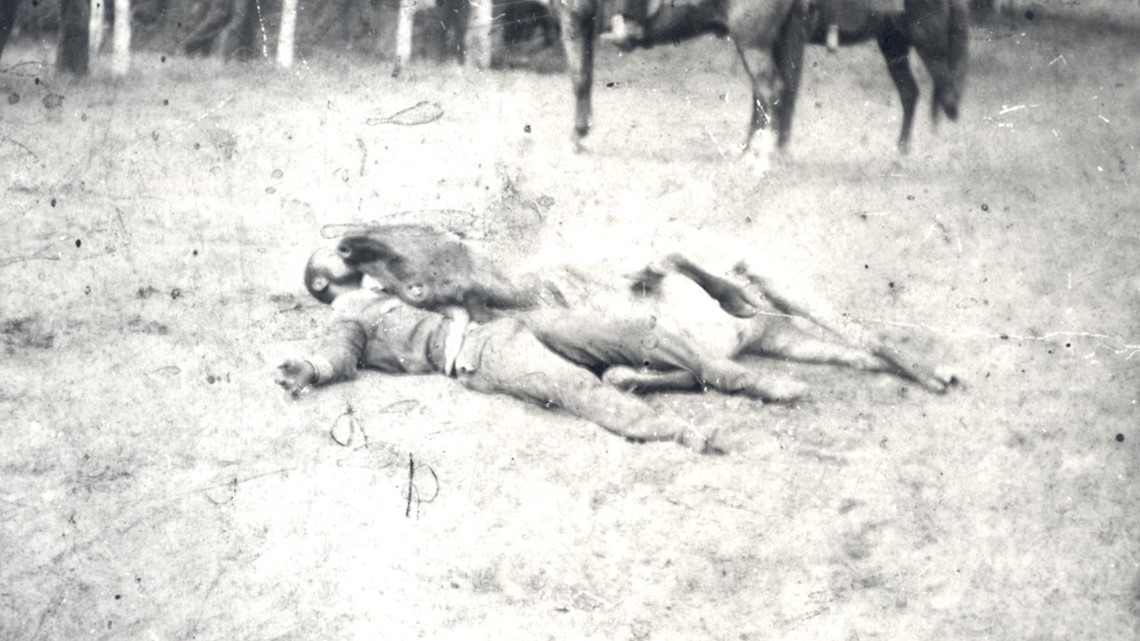
Pickett's fame grew to the point where he starred in multiple silent films, including the 1921 movie The Bull-Dogger.
Pickett eventually retired from his shows. In 1932, at the age of 61 in Ponca City, OK, Pickett passed away after a multi-day coma caused by a bronco kicking him in the head.
In 1971, Pickett became the first Black rodeo athlete voted into Oklahoma City's Rodeo Hall of Fame.
Fort Worth's National Multicultural Western Heritage Museum also inducted him into its Hall of Fame in 2003, showcasing some of the apparel that made him so memorable.
The Bill Pickett Invitational Rodeo celebrates and honors Black cowboys and cowgirls from around the country.
The organization also has a Bill Pickett Memorial Scholarship Fund that gives opportunities for students to experience the rodeo while learning about the history and contributions of African American cowboys and cowgirls, and their impact on the American West.
By preserving the rodeo culture in the African American community, modern day cowboys and cowgirls are taking a little bit of Pickett with them and keeping his legacy alive.

